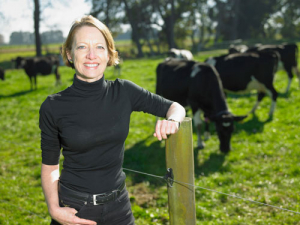The index asks people in 40 countries questions on, say, the nation’s car ownership, suicide rate, teenage pregnancy and personal health. The answers are then assessed against actual data.
New Zealanders rank 19th of 40 countries in accuracy, well behind the Scandinavian countries, where people know the correct answers to things (which could be something to do with their education system).
Kiwis are particularly bad on the personal aspect of health: we rated 39th in accuracy of assessment, ahead of only South Korea.
Weaknesses in perception could explain some of the debate on our environment: there seems to be a perception that we are affecting our clean green image with farming practices and the use of 1080.
However, overseas people, including Scandinavians, rank NZ’s environment highly -- far above topics such as ‘food and beverage outlets’, ‘accommodation’ or even non-environmental ‘tourist attractions’.
The Ministry for Business, Innovation and Employment (MBIE) published results from the ‘International Visitor Survey’ last year. It said at least 92% of visitors scored NZ’s natural and built environment above 7, giving it the highest ranking of any category, even above safety and activities experienced. Only about 70% of people gave ‘above 7’ to their accommodation, eating and drinking, and tourist attraction experiences. Note that 70% could still be considered high – but 92% support for the environment is exceptional.
Criticisms about the natural and built environment included ‘litter’, ‘lack of recycling facilities’ and that ‘the built environment didn’t live up to the natural environment’.
Results from the Ministry for Primary Industries (MPI) research on ‘New Zealanders’ views of the primary sector’, published in February, are also worth considering in the light of perception.
In 2008, 83% of rural respondents and 78% of urban respondents held a positive view of farming in general.
In 2017, 63% of rural respondents and 59% of urban held positive views of beef and sheep farming, but only 50% of rural and 47% of urban held positive views of dairy farming.
Horticulture fared best, with more positive scoring than beef and sheep. Of note, however, is that whereas contribution to the economy was regarded positively by both sectors in both years (46-51% range), negative views of environmental management increased substantially between 2008 and 2017 (24 to 47% for urban and 35 to 64% for rural).
This is despite more integrated pest destruction schemes and more chemical monitoring and regulation, as well as increased precision technologies.
The regulations and advances have been focussed on decreasing environmental impact, improving safety and increasing efficiencies -- yet concerns have increased.
The change almost certainly reflects increased awareness and perception.
Good news for the primary sector is that most respondents -- urban and rural – agreed expansion of the primary sector, particularly in value and efficiencies, will be good for NZ.
The overall result from the MPI survey showed close alignment of urban and rural thinking, so questions can and should be asked about the misperception of ‘divide’.
Next time somebody says ‘perception is reality’, ask them what sort of television show they live in; shows labelled ‘reality’ seldom reflect it. Or just ask them for the facts.
People from overseas rate our environment highly. Most farmers have taken innovative measures to protect it with shelters, plantings, QEII covenants, wetland creation and sediment traps, and are using technologies to improve efficiencies. The data are available and more understanding will improve perception.
And here’s a suggestion: send a photograph of your environmental initiative to TV One Weather. Show the evidence and help change misperceptions.
• Dr Jacqueline Rowarth, PhD (soil science) has been analysing agri-environment interaction for several decades.









